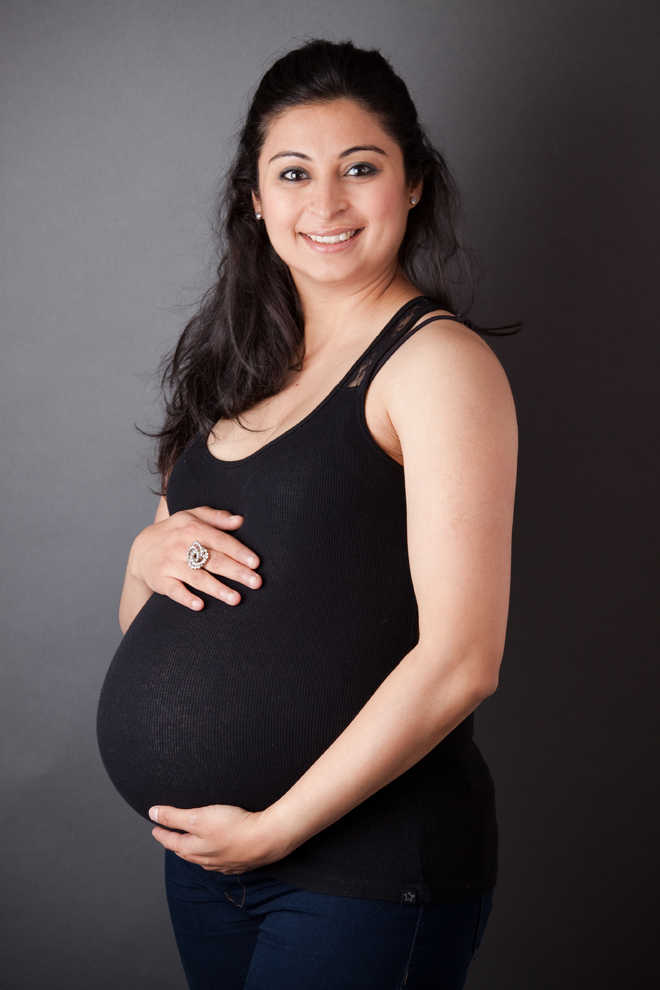Control the nine-month itch
Dr Nupur Sharma
Pregnancy is a delicate condition involving various metabolic and hormonal changes. In almost every pregnancy, mild itching of skin due to increased blood supply and hormonal changes (effect of oestrogen) has a common problem. As the pregnancy progresses, the area around the abdomen, belly and breasts get stretched and may feel itchy. Having dry skin can make it even worse. Many women have generalised itching, more so on palms and soles, during the later stage of pregnancy.
Unfortunately, many women ignore itching problems initially, dismissing it as a normal phenomenon during pregnancy. However, if itching turns severe, it can lead to a harmful liver condition called obstetric cholestasis (OC) or intra-hepatic cholestasis of pregnancy (ICP)! While a majority with this condition do not develop chronic symptoms during or after pregnancy, it can potentially have serious complications for the baby-to-be-born.
Most women are particular about their waist lines, which expand during pregnancy to accommodate the foetal placenta and liquid. Hence, severe itchiness in and around the abdomen during the second or the third trimester should be taken quite seriously, as it could be a warning sign for intrahepatic cholestasis. Severe itching may be followed by dark-coloured urine, unusual bowel movements, and yellow eyes or skin. Hepatocytes (liver cells) are not able to function adequately. Even worse, women may end up with red, irritated skin with small cuts or injuries in areas where they have been scratching continuously. Other symptoms may include loss of appetite, nausea and malaise. Some women develop mild jaundice soon afterwards. Feeling the urge to scratch all over uncontrollably through the day, women may also develop psychological conditions such as depression or anxiety.
If itching becomes severe, get it checked as cholestasis during pregnancy poses the risk of stillbirth and prematurity. If you had experienced OC in your previous pregnancy, you are more likely to develop it again. In this condition, bile salts do not flow properly and build up in the bloodstream abnormally, which causes persistent itch in the later stage of pregnancies from stimulation in the nerves under the skin.
Studies say that OC or ICP happens more commonly in women carrying twins, triplets, and can happen in one in every 100 pregnacies. The bile acids across the foetal compartment may cause foetal arrthymia, and even lead to foetal death (in rare cases). On the other hand, if you have terrible itching that spreads to your arms and legs, it may lead to pruritic urticarial papules and plaques (PUPP), another less known skin condition in pregnancy. Symptoms include chronic hives-like rashes or itchy red spots in the body.
Although it is not harmful for the foetus, but in association with hypertension it can be bothersome for pregnant women, and may spread to thighs, back, and limbs. Pemphigoid gestationis, where itchy eruptions begin like hives and then convert into blistering lesions, is a more severe condition than PUPP.
Close foetal monitoring is indeed the harbinger of antenatal care in women with additional complications, linked to itching. Since foetal death rarely occurs before 36 weeks, it is prudent to deliver between 36-37 weeks of pregnancy for women detected with OC or ICP. If handled well, complications during or after delivery can be managed, but close monitoring by experts is must.
Here are a few tips to help in reliving itching during pregnancy:
- Avoid taking hot showers. Opt for colloidal oatmeal baths which help in soothing the skin.
- Use an ice-pack or a small towel soaked in cold water on itchy parts.
- Apply aloe vera gel daily. It is a natural healer for inflammation of skin.
- Keep your skin well-moisturised.
- Use non-fragrant soaps and avoid perfumes which may be highly sensitive to the skin.
- Stay indoors and keep away from scorching heat
- Wear loose-fit cotton clothes and cotton undergarments to prevent irritation.
— The writer is an obstetrician & gynaecologist, Paras Bliss Hospital, Panchkula









